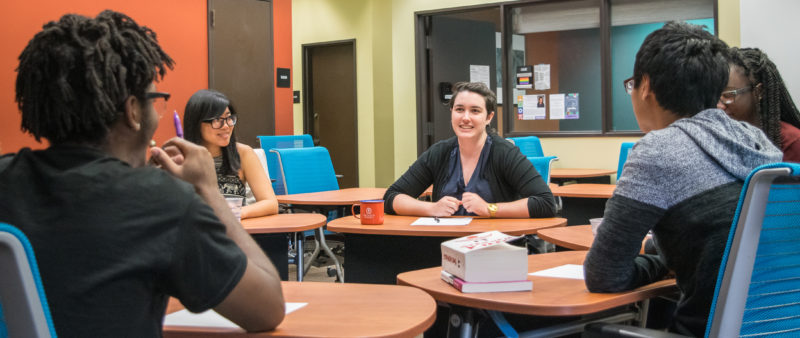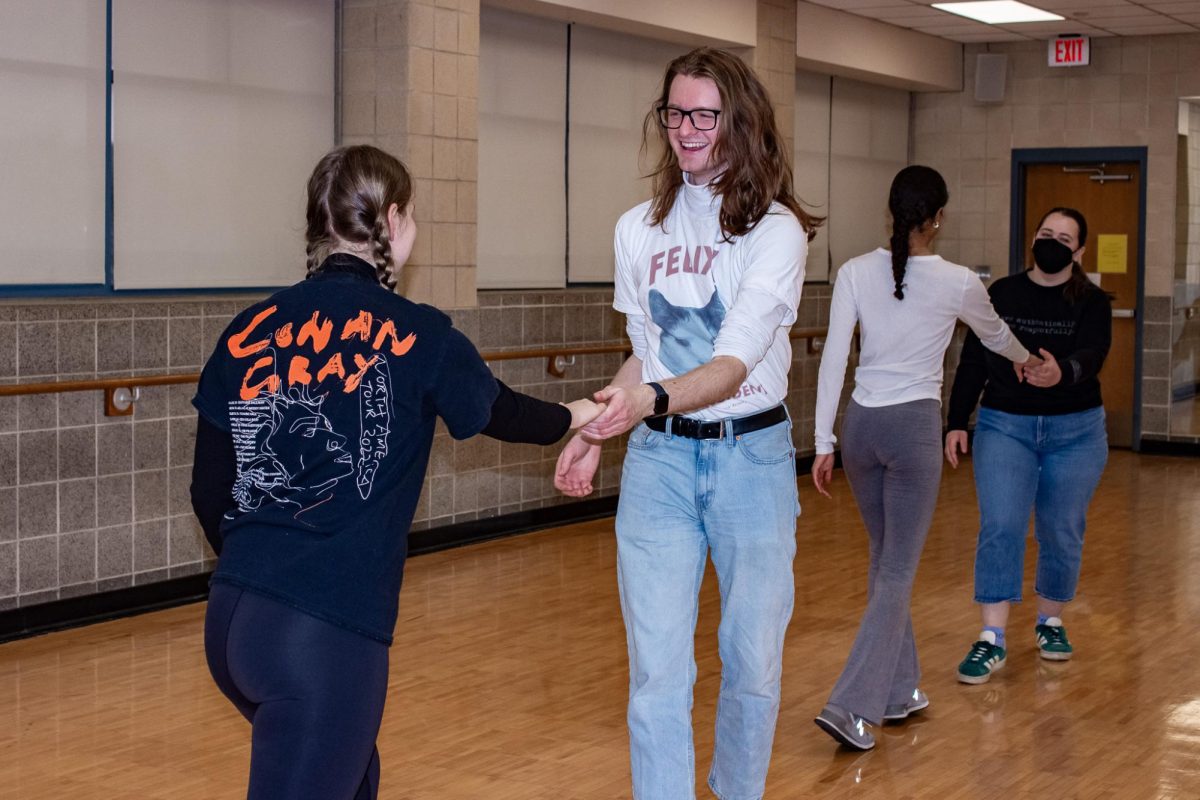At the end of the semester, students fill out an evaluation form for each professor, explaining what they liked about the class and what the professor could improve on. For some students, however, this is a semester-long job. The Tigers as Partners (TaP) program, which began in the spring of 2017, now has 10 students who sit in on classes and meet with professors once a week in order to provide their insight on how well their class is operating.
The program was created by Sophia Abbot, a fellow for collaborative programs, and is based on the Students as Learners and Teachers program at Bryn Mawr College in Pennsylvania. The program is designed to help faculty improve and evolve their class over the course of the semester in order to make it as efficient and productive as possible.
“They do regular observations and they’re not enrolled in the class, but they’re giving regular, genuine student feedback on what’s happening, as well as offering a general student perspective on what they’re saying in the classroom,” Abbot said.
The students participating in the program are put in a class that they’ve not taken themselves and in a department they aren’t majoring in, so that there are no biases for a student who is familiar with the course or subject.
One of the program’s students, Michael Paniagua, is a junior anthropology major who joined the program because it aligned with his current and future interests.
“It sounded like something that I would be personally interested in, because later on in life I would like to become a professor myself. So I would love to see this inside view of what it’s like to teach, and at the same time I care about giving back to the education system, to refine it for others,” Paniagua said.
When it comes to giving feedback to professors, the group reflects it seemed daunting and intimidating at first. The realities of such a task are now far from it.
“If a professor decides to participate in this program, then they are acknowledging that there are things they would like to improve on that they may not know about,” Paniagua said. “There really isn’t any criticism so long as you’re not outright insulting the professor.”
The partnerships are for a wide variety of courses and departments, such as education, theatre, urban studies and even the first-year experience courses.
The group also meets once a week to discuss the progress in the classes as well as give each other advice about the progress of their classes.
“If I’m running into a problem, or a professor wants to change something but doesn’t know how, I can come to these guys and be like, “˜Hey, this is an issue we’re having in the class. What do you guys think about it?'” said Natalie McCray, a junior sociology major who has been in the program since its inception. “Then, they can pull from their own experiences from their partnerships or other classes they’ve taken, and it just gives a good range and variety of responses to an issue that a professor might have.”
Students who are enrolled in the class can also come to the partners and discuss any problems or issues they might have in the class.
“We’re like the liaison between the students and the professors, so we’re in this weird position where we’re not strictly students of the class, but we still have that relationship with the students, and we also have a personal relationship with the professor,” McCray said.
The program will continue in the years to come. Eventually, the program may even expand so that even more professors will have the opportunity to get assistance on how to optimize the students’ experience of the course.
“My ultimate goal is that every professor on campus that wants to do this has an opportunity to do this, and hopefully that eventually every professor on campus will have participated at least once,” Abbot said.
The program allows for growth on both all ends of the academic spectrum. “I will definitely continue to be a TaP consultant so long as the position is available for me. I greatly value the opportunity to help professors improve their teaching. I think student-teacher interactions are important for improving the class environment, and for me and my career goals I think it is personally fulfilling,” Paniagua said.







